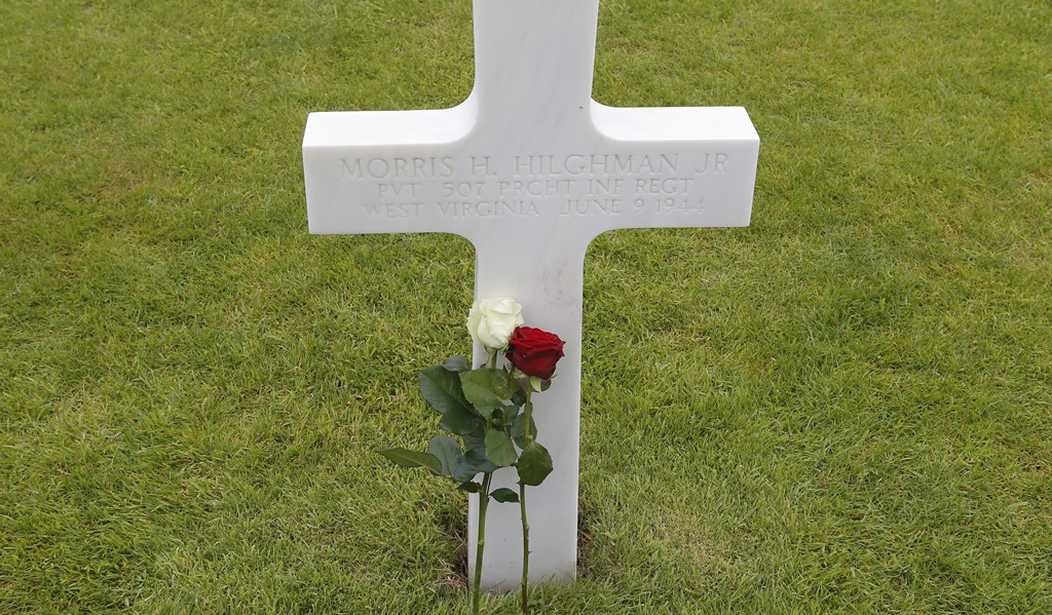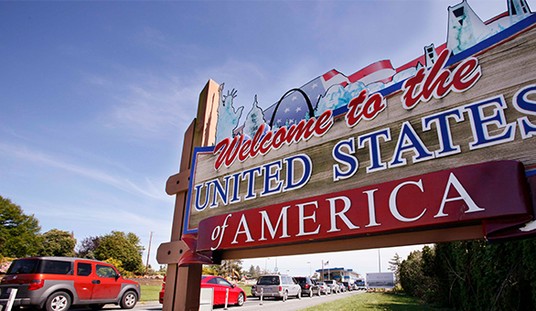Commemorating D-Day, June 6, 1944, is usually accompanied by somber speeches, wreath layings, and hundreds of veterans of that awful/glorious day wandering among the headstones of fallen comrades.
Politicians usually give speeches, praising the sacrifice and the spirit of the times that moved millions to take up arms in defense of democracy. There are usually somber religious services and old friends hoisting a few to the many empty chairs that signify a loss of fellowship.
But the cemeteries in Normandy are eerily quiet and empty this year. The coronavirus pandemic has prevented the usual crowds from gathering to remember.
“The sadness is almost too much, because there is no one,” said local guide Adeline James. “Plus you have their stories. The history is sad and it’s even more overwhelming now between the weather, the (virus) situation and, and, and.”
French residents in the area remember too. They could usually be seen placing flags and wooden crosses on the graves of the dead, never forgetting the horrible cost in blood that purchased their freedom from the Nazis.
But this year, the beaches and fields nearby are empty.
Except for one Frenchman, who took it upon himself to recall the sacrifices of the fallen.
Despite the lack of international crowds, David Pottier still went out to raise American flags in the Calvados village of Mosles, population 356, which was liberated by allied troops the day after the landing on five Normandy beachheads.
In a forlorn scene, a gardener tended to the parched grass around the small monument for the war dead, while Pottier, the local mayor, was getting the French tricolor to flutter next to the Stars and Stripes.
“We have to recognize that they came to die in a foreign land,” Pottier said. “We miss the GIs,” he said of the U.S. soldiers.
An Englishman living on the Normandy coast who was a familiar face to families looking to remember their loved ones stepped forward to lay wreaths at several of the graves.
For years, Steven Oldrid, 66, had helped out with D-Day events around the beaches where British soldiers had landed — and often left their lives behind — be it organizing parking, getting pipers to show or getting sponsors for veterans’ dinners.
Laying wreaths though, seemed something special, reserved for families and close friends only.
But in pandemic times, pandemic rules apply. Oldrid was first contacted in March.
“I was actually choked up when I got the first request,” Oldrid said. “I’m always on the other side. Always in the background,” he said.
Oldrid kept getting requests to lay wreaths, which began piling up in his garage. Naturally, the families were nervous that Oldrid would be unable to lay them all.
Before he knew, it in this extraordinary year, he had become the extraordinary wreathlayer — proof that kindness cannot be counted in pounds, euros or dollars, but in time and effort to organize a day around the wishes of others.
As June 6 approached, the boxes of wreaths and grave markers piled up in his garage. And to soothe the nerves of families, he has also been filming live for Facebook several ceremonies and wreathlayings.
There is no great moral lesson to be learned from the warriors who took part in the D-Day landings. The average age of the GIs who landed at five beaches in Normandy was all of 20 years old. They weren’t thinking of the moral dimensions of their sacrifice. They wanted to live. They wanted to marry a sweetheart, or find a sweetheart, settle down, and have a long life.
So, so many of them didn’t. Many more were scarred physically and emotionally for the rest of their lives.
It cheapens their sacrifice to try and draw any kind of parallel to what’s happening in the country today. All we should do is remember. And bless them for their courage and heroism.










Join the conversation as a VIP Member